Change Language :
iglidur® C500 - Material data
Material table
General specification
Unit
iglidur® C500
Test method
density
g/cm³
1,37
Colour
magenta
max. Moisture absorption at 23°C/50% room humidity.
% by weight
0,3
DIN 53495
max. total moisture absorption
wt.-%
0,5
Sliding friction coefficient, dynamic, against steel
µ
0,07 - 0,19
pv value, max. (dry)
MPa x m/s
0,7
Mechanical specification
flexural modulus
MPa
3000
DIN 53457
flexural strength at 20°C
MPa
100
DIN 53452
Compressive strength
MPa
110
maximum recommended surface pressure (20°C)
MPa
110
Shore D hardness
81
DIN 53505
Physical and thermal specification
Upper long-term application temperature
°C
+250
Upper short-term application temperature
°C
+300
Lower application temperature
°C
-100
thermal conductivity
[W/m x K]
0,24
ASTM C 177
coefficient of thermal expansion (at 23°C)
[K-1 x 10-5]
9
DIN 53752
Electrical specification
Volume resistivity
Ωcm
>1014
DIN IEC 93
surface resistance
Ω
>1013
DIN 53482
Table 01: Material data
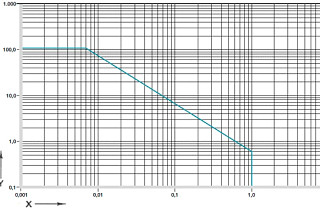
diagram. 01: Permissible pv value for iglidur® C500 plain bearings with 1 mm wall thickness in dry operation against a steel shaft, at +20 °C, installed in a steel housing
X = Sliding speed [m/s]
Y = load [MPa]
iglidur® C500 joins the family of extremely media- and temperature-resistant iglidur® materials X, X6 and A500. Improved wear resistance and greater design freedom - e.g. as a guide ring - characterise this material.
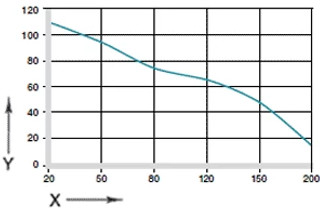
diagram. 02: maximum recommended surface pressure as a function of temperature (110 MPa at +20 °C)
X = temperature [°C]
Y = load [MPa]
Mechanical specification
The maximum recommended surface pressure represents a mechanical material parameter. Conclusions on the tribology cannot be drawn from it. The compressive strength ofiglidur® C500 bearings decreases with increasing temperatures. diagram. 02 illustrates this correlation.
diagram. 03 shows how iglidur® C500 deforms elastically under radial load. Under the maximum recommended surface pressure of 110 MPa, the deformation at room temperature is approx. 4.5 %.
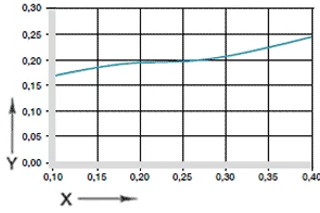
Diagram 04: Coefficient of friction as a function of the surface speed, p = 1MPa
X = surface speed [m/s]
Y = coefficient of friction μ
Friction and wear
The values for friction and wear are even more favourable for iglidur® C500 than for the other high-temperature materials iglidur® X and A500. The coefficient of friction increases moderately with the surface speed. With the load, the coefficient of friction initially drops significantly to below 0.1 up to 20 MPa; with higher loads only slightly.friction and wear are also highly dependent on the mating partner. Shafts that are too smooth increase both the coefficient of friction and the wear of the bearing.a ground surface with an average surface finish of Ra = 0.6 to 0.8 μm is best suited.
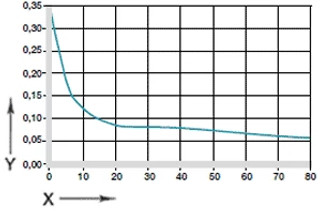
Diagram 05: Coefficient of friction as a function of the pressure, v = 0.01m/s
X = load [MPa]
Y = coefficient of friction μ
iglidur® C500
dry
Grease
oil
water
coefficient of friction µ
0,07 - 0,19
0,09
0,04
0,04
Table 04: coefficient of friction against steel (Ra = 1 μm, 50 HRC)
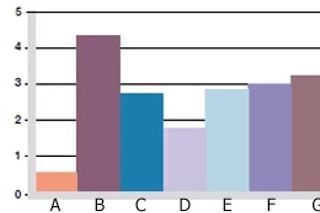
diagram. 06: Wear, rotating application with different shaft materials, p = 1 MPa, v = 0.3 m/s
X = Shaft material
Y = wear [μm/km]
A = aluminium, hard anodised
B = free cutting steel
C = Cf53
D = Cf53, hard chrome-plated
E = HR carbon steel
F = 304 SS
G = high grade steel
Shaft materials
Diagram 06 shows test results with different shaft materials that were carried out with plain bearings made from iglidur® C500.
Using the example of a rotational movement with radial loads of 1 MPa and a speed of 0.3 m/s, it is clear that iglidur® C500 is very consistent in terms of wear across a wide range of shaft types. In this case, only the pairing with free cutting steel stands out at the top and, remarkably, the pairing with aluminium hc at the bottom.the wear in rotation is higher than in swivel movements, especially with increasing radial loads (diagram 07).
Consulting
I look forward to answering your questions

Shipping and consultation
In person:
Monday to Friday from 7 am - 8 pm.
Saturdays from 8 am- 12 pm.
Online:
24h
WhatsApp-Service:
Montag – Freitag: 8 – 16 Uhr


